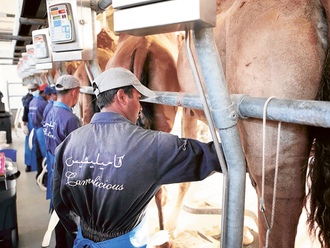
In 1945, Austrian physician René Spitz investigated an orphanage that took extra care to make sure its infants were not infected with disease. The children received first-class nutrition and medical care, but they were barely touched, to minimise their contact with germs. The approach was a catastrophe. Thirty-seven per cent of the babies died before reaching age 2.
It turns out that empathetic physical contact is essential for life. Intimate touch engages the emotions and wires the fibres of the brain together.
The power of this kind of loving touch is long-lasting. The famous Grant Study investigated a set of men who had gone to Harvard in the 1940s. The men who grew up in loving homes earned 50 per cent more over the course of their careers than those from loveless ones. They suffered from far less chronic illness and much lower rates of dementia in old age. A loving home was the best predictor of life outcomes.
If the power of loving touch is astounding, the power of invasive touch is horrific. Christie Kim of NYU surveyed the research literature on victims of child sexual abuse. The victims experience higher levels of anxiety throughout their lifetimes. They report higher levels of depression across the decades and higher levels of self-blame. They are more than twice as likely to experience sexual victimisation again.
Over the course of each year, people have many kinds of interactions and experience many kinds of mistreatment. But there is something unique about positive or negative touch. Emotional touch alters the heart and soul in ways that are mostly unconscious. It can take a lifetime of analysis to get even a glimpse of understanding.
For this reason, cultures all around the world have treated emotional touching as something apart. The Greeks labelled the drive to touch with the word “eros”, and they meant something vaster and deeper than just sexual pleasure. “Animals have sex and human beings have eros, and no accurate science is possible without making this distinction,” Allan Bloom observed.
The Abrahamic religions also treat sex as something sacred and beautiful when enveloped in loving and covenantal protections, and as something disordered and potentially peace-destroying when not.
Over the past 100 years or so, advanced thinkers across the West have worked to take the shame out of sex, surely a good thing. But they’ve also disenchanted it. As Elizabeth Bruenig wrote in The Washington Post, “One of the principal outcomes of the sexual revolution was to establish that sex is just like any other social interaction — nothing taboo or sacred about it.” Sex is seen as a shallow physical and social thing, not a heart and soul altering thing.
One unintended effect of this disenchantment is that it becomes easy to underestimate the risks inherent in any encounter. The woman who talked in an online article about her date with Aziz Ansari is being criticised because what happened to her was not like what happened to the victims of Harvey Weinstein and Louis C.K. There was no workplace power dynamic and no clear violation of consent. The assumption seems to be that as long as there’s consent between adults, everything else is kosher.
Surely that’s setting the bar amazingly low. Everything we know about touch suggests that even with full consent, the emotional quality of an encounter can have profound positive or negative effects. If Ansari did treat her coldly or neglectfully, it’s reasonable to think that the shame she felt right after was the surface effect of a deeper wound. Neglectful, dehumanising sex is not harassment, but it’s some other form of serious harm.
Disenchanting emotional touch also causes people to underestimate the way past experiences shape current behaviour. Two writers I greatly admire criticised the woman in the Ansari episode for not exercising more agency. If she was uncomfortable, she could have put on her clothes and hopped in a taxi.
But that’s not how agency works. It’s not a card you pull out of your pocket and lay on the table. Agency is learned, not bred. And one of the things that undermines agency most powerfully is past sexual harm.
The abuse of intimacy erodes all the building blocks of agency: self-worth, resiliency and self-efficacy (the belief that you can control a situation). It is precisely someone who lives within a culture of supposedly zipless encounters who is most likely to be unable to take action when she feels uncomfortable. It’s the partner’s responsibility to be sensitive to this possibility.
Every human being has had better and worse experiences. Everybody makes mistakes. And I hate the way Babe, which published the story about the Ansari date, violated everybody’s privacy here. But it seems that the beginning of good sense is to take the power of touch seriously, as something that has profound good and bad effects.
It seems that the smarter we get about technology, the dumber we get about relationships. We live in a society in which loneliness, depression and suicide are on the rise. We seem to be treating each other worse. The guiding moral principle here is not complicated: Try to treat other people as if they possessed precious hearts and infinite souls. Everything else will follow.
–New York Times News Service












